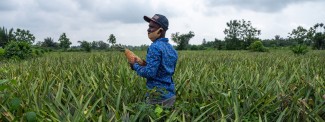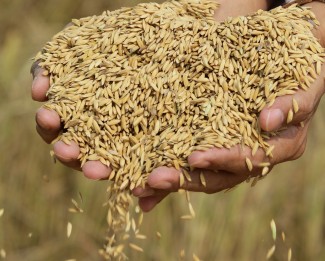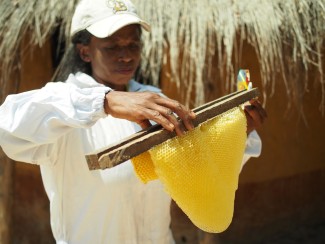Aligned with the Global Goals, plan has elevated efforts and new targets
Building upon more than a decade of work with Least Developed Countries (LDCs), the Enhanced Integrated Framework (EIF) has just launched its Strategic Plan 2019-2022.
Recognizing that the need to support LDCs continues amid recent global uncertainties, the plan includes a fresh mission, goals and objectives that draw upon the expertise the EIF partnership has developed in its ground-breaking work with the poorest countries across the world.
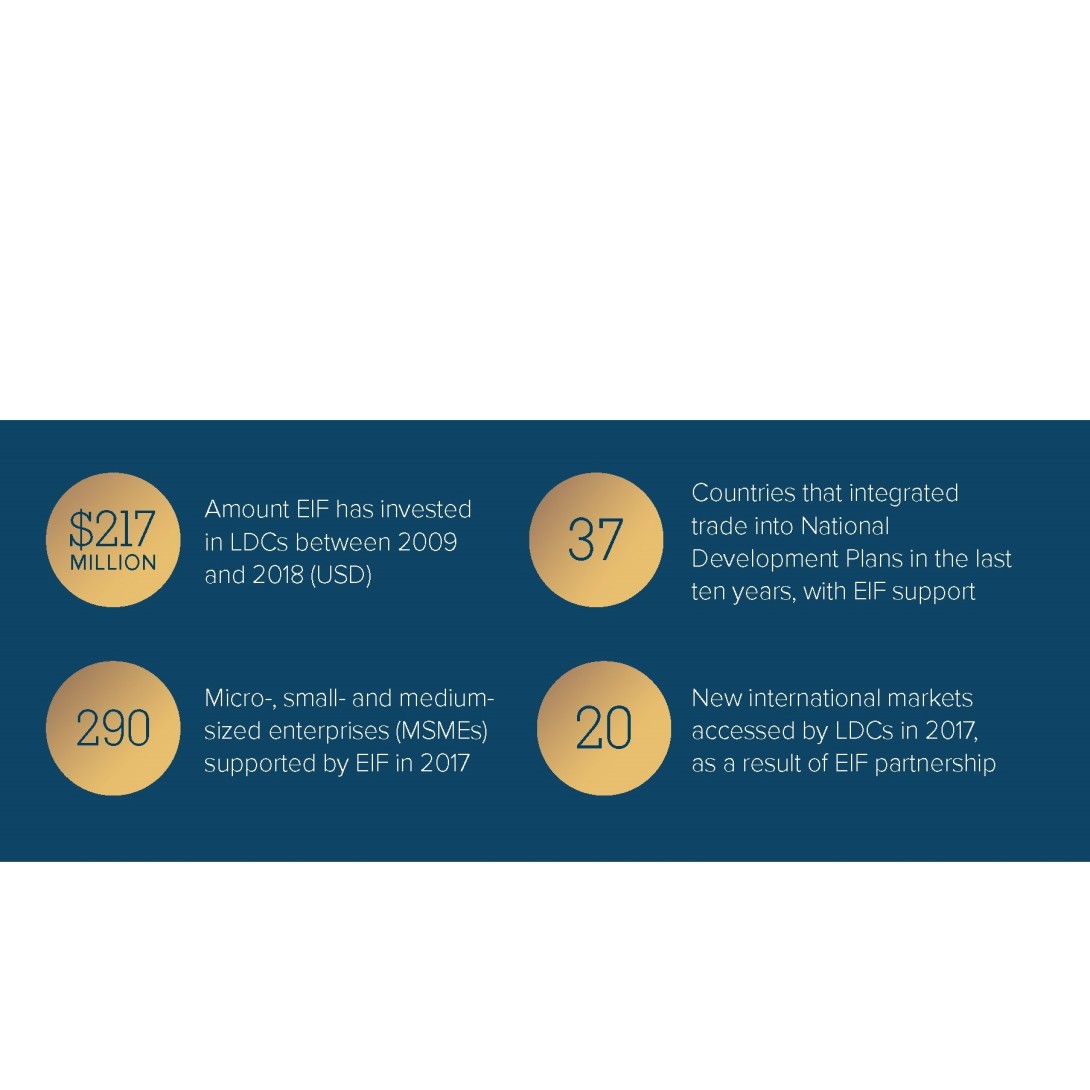
Results to date include 37 LDCs integrating trade into their national development plans, providing a springboard for increased investments in the trade sector. Results include EIF trade projects in Cambodia, Malawi and Vanuatu spurring more than a hundred million USD in additional investments. And for impoverished soy, groundnut and ginger farmers, there have been income increases following trainings in production methods, infrastructure improvements and the provision of seeds and loans of land.
There remains a gap between the trends in global markets and the reality for LDCs – where nearly one billion people are living today. LDC economies are still centred on key export products and vulnerable to fluctuations in commodity prices. LDCs have inadequate infrastructure, cumbersome customs procedures and limited small business support. EIF is directly addressing these persistent constraints.
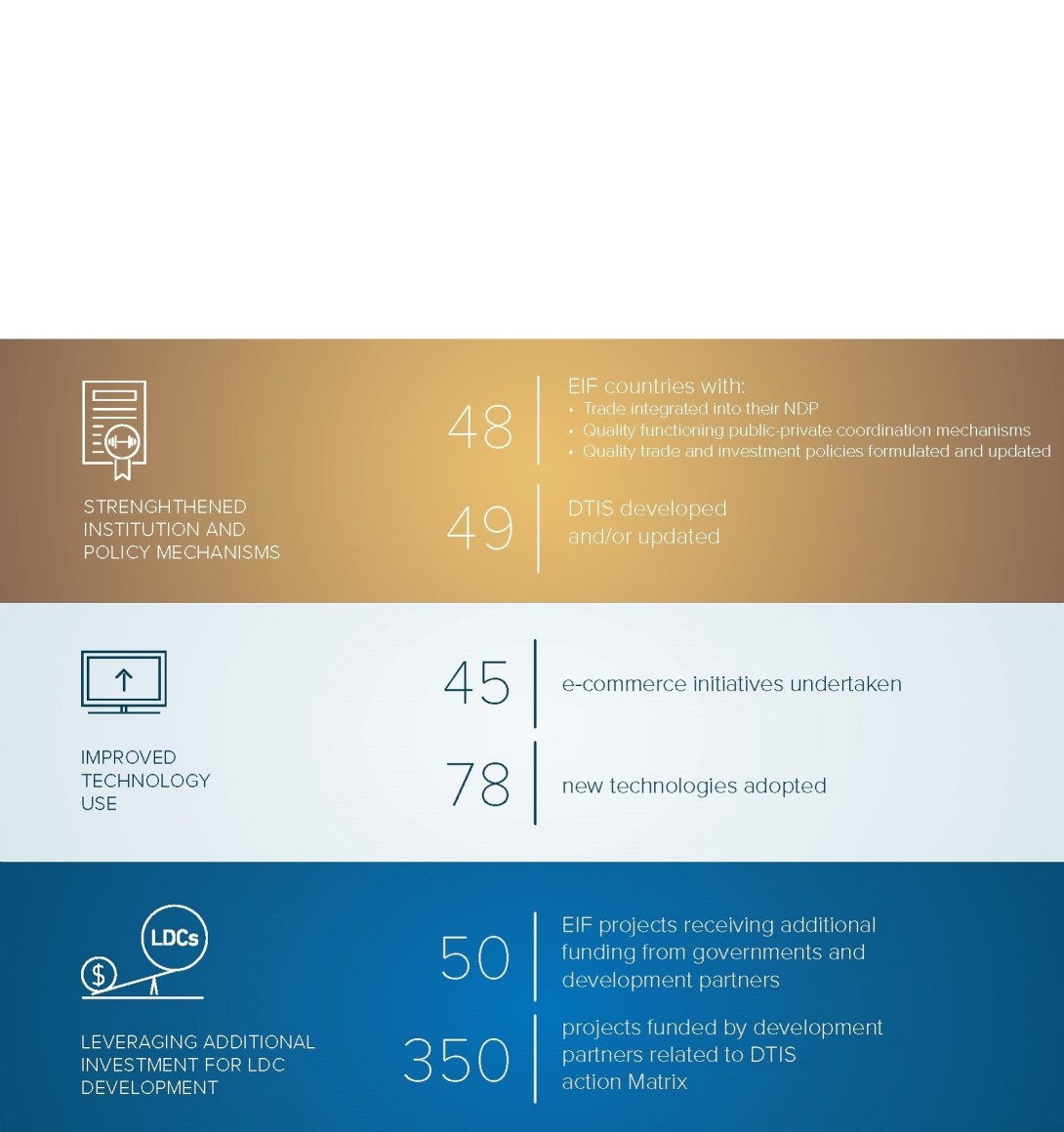
By 2022, EIF aims for 48 countries with trade integrated into development plans; 700 micro-, small- and medium-sized enterprises (MSMEs) assisted to integrate into global trade; and 78 new technologies developed to enhance the value of a country’s exports, among others – all implemented through an extensive global network of partners both large and small.
“EIF has been on a remarkable journey over the past decade. We have built the country ownership that is essential for LDCs to achieve sustained trade development. We must redouble our efforts to make LDCs more competitive,” said EIF Executive Director Ratnakar Adhikari.
The redoubling of efforts includes maximizing the work EIF does best – meaning forging close working relationships with LDC governments; creating unique mechanisms for coordination across sectors, partners and ministries; and serving as a catalyst for in-country investments in trade. And, with EIF’s new plan, the partnership’s work (explicitly mentioned in Sustainable Development Goal 8) is closely aligned with the 17 Global Goals, and it is clearly delineated how EIF is contributing to their achievement.
“EIF has been on a remarkable journey over the past decade. We have built the country ownership that is essential for LDCs to achieve sustained trade development. We must redouble our efforts to make LDCs more competitive,”
Ratnakar Adhikari, EIF Executive Director
With an unstable global economy and high trade costs creating uncertainties across the world, EIF will focus work on fragile countries and providing the adaptability needed as well as increasing engagement and support for MSMEs and women.
Drawing from past ecommerce research in a handful of countries, new targets will involve supporting the use and uptake of technology in LDCs that draws from evidence-based trade studies.
“The EIF does vital work and is making a real impact on the ground. But of course there is still a huge amount of work to be done. We are grateful for the EIF partners’ strong commitment to our ongoing efforts to take this work forward, as encapsulated in the new Strategic Plan. Together we can ensure that the EIF continues to deliver for the LDCs,” said WTO Director-General Roberto Azevêdo.
For the people and institutions EIF has worked with on the ground, cooperative efforts translate into real impacts.
Guesthouse owner Alistair Pae from outside Honiara in the Solomon Islands was able to construct a three-bungalow beachfront spread and is hosting six guests on average per week – and that is creating new income opportunities for himself and his neighbours.
Simire Cibolonza does business in Goma on the Democratic Republic of the Congo’s border with Rwanda. With improvements in government policy related to cross-border trade, her business with Rwandese counterparts is much enhanced – and opportunities for trade across borders accelerated.
And in Laos, a trust fund of over US$39 million is helping to finance trade priorities identified in the country’s Diagnostic Trade Integration Study. The alignment of government, donors and the private sector has improved the regulatory environment and supported more than 200 local companies – and will continue to be a major vehicle for doing so.
Following EIF’s new plan with an eye to 2022, Pae, Cibolonza and numerous Laotian businesses can continue to see improvements in the trade landscapes they call their own, whether a quiet beach in the Pacific, a bustling border town on the shores of Lake Kivu or an enterprise in lush Luang Prabang.
“The EIF does vital work and is making a real impact on the ground. But of course there is still a huge amount of work to be done. We are grateful for the EIF partners’ strong commitment to our ongoing efforts to take this work forward, as encapsulated in the new Strategic Plan. Together we can ensure that the EIF continues to deliver for the LDCs,”
Roberto Azevêdo, WTO Director-General
If you would like to reuse any material published here, please let us know by sending an email to EIF Communications: eifcommunications@wto.org.

